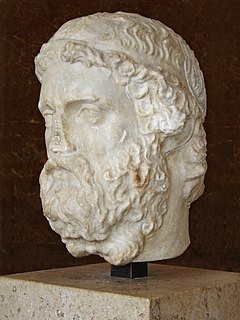A Quote by M. F. K. Fisher
There is a communication of more than our bodies when bread is broken and wine is drunk. And that is my answer when people ask me: Why do you write about hunger, and not wars or love.
Related Quotes
It seems to me that our three basic needs, for food and security and love, are so mixed and mingled and entwined that we cannot straightly think of one without the others. So it happens that when I write of hunger, I am really writing about love and the hunger for it, and warmth and the love of it and the hunger for it… and then the warmth and richness and fine reality of hunger satisfied… and it is all one.
We ask ourselves all kinds of questions, such as why does a peacock have such beautiful feathers, and we may answer that he needs the feathers to impress a female peacock, but then we ask ourselves, and why is there a peacock? And then we ask, why is there anything living? And then we ask, why is there anything at all? And if you tell some advocate of scientism that the answer is a secret, he will go white hot and write a book. But it is a secret. And the experience of living with the secret and thinking about it is in itself a kind of faith.
You have a plantation where you have 10 white people and you have about 50 or 60 black people. The automatic thought was, 'Why didn't they raise up? Why didn't they overpower? They had the numbers.' But really these people, their hope was broken. Their sense of love was broken. Their appreciation for who they were was broken.
Long ago, during my apprenticeship in the wine trade, I learned that wine is more than the sum of its parts, and more than an expression of its physical origin. The real significance of wine as the nexus of just about everything became clearer to me when I started writing about it. The more I read, the more I traveled, and the more questions I asked, the further I was pulled into the realms of history and economics, politics, literature, food, community, and all else that affects the way we live. Wine, I found, draws on everything and leads everywhere.
To be a holy person means that the elements of our natural life experience the very presence of God as they are providentially broken in His service. We have to be placed into God and brought into agreement with Him before we can be broken bread in His hands. Stay right with God and let Him do as He likes, and you will find that He is producing the kind of bread and wine that will benefit His other children.
































